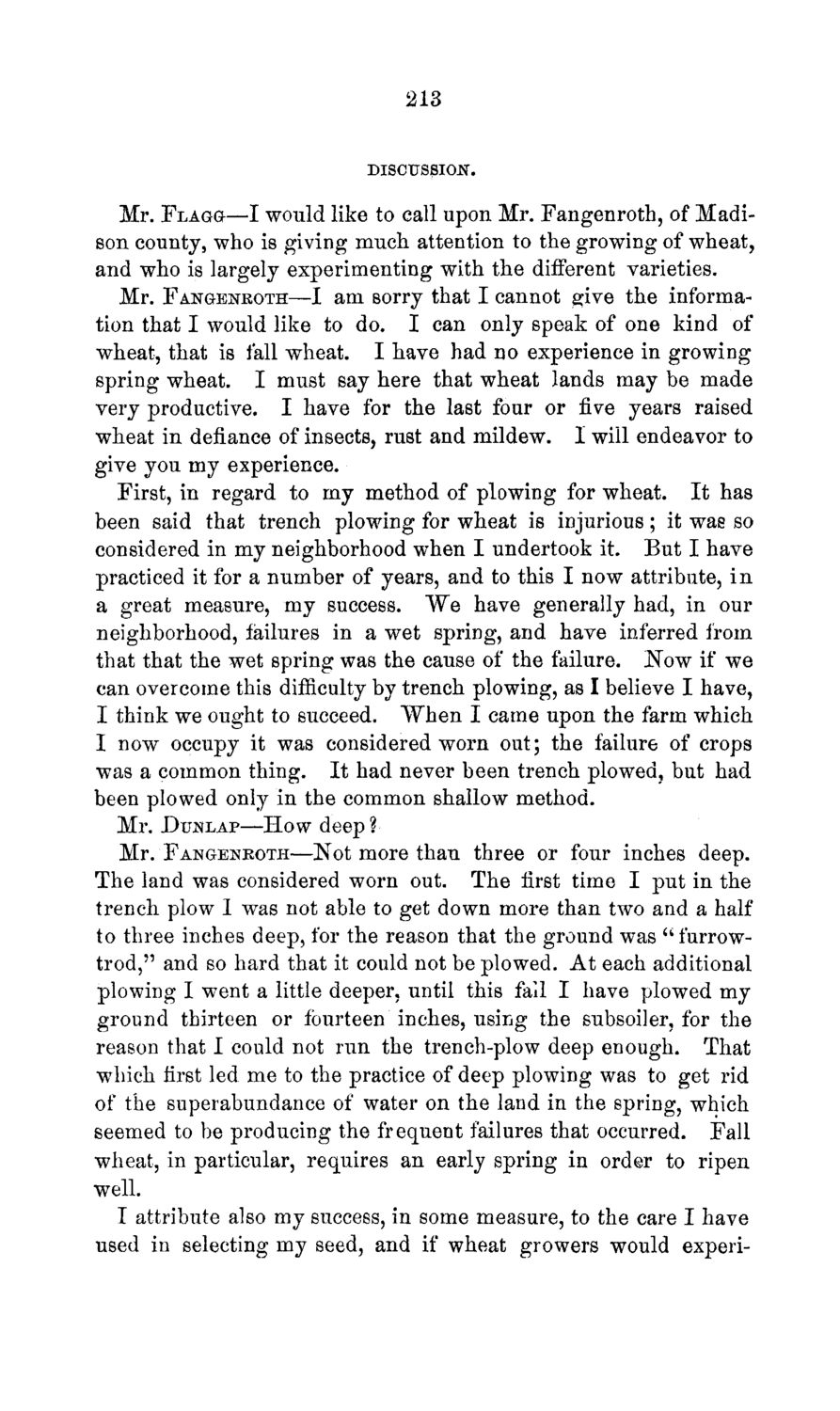| |
| |
Caption: Board of Trustees Minutes - 1869
This is a reduced-resolution page image for fast online browsing.

EXTRACTED TEXT FROM PAGE:
213 DISCUSSION. Mr. FLAGG—I would like to call upon Mr. Fangenroth, of Madison county, who is giving much attention to the growing of wheat, and who is largely experimenting with the different varieties. Mr. FANGENROTH—I am sorry that I cannot give the information that I would like to do. I can only speak of one kind of wheat, that is fall wheat. I have had no experience in growing spring wheat. I must say here that wheat lands may be made very productive. I have for the last four or five years raised wheat in defiance of insects, rust and mildew. I will endeavor to give you my experience. First, in regard to my method of plowing for wheat. It has been said that trench plowing for wheat is injurious; it was so considered in my neighborhood when I undertook it. But I have practiced it for a number of years, and to this I now attribute, in a great measure, my success. We have generally had, in our neighborhood, failures in a wet spring, and have inferred from that that the wet spring was the cause of the failure. Now if we can overcome this difficulty by trench plowing, as I believe I have, I think we ought to succeed. When I came upon the farm which I now occupy it was considered worn out; the failure of crops was a common thing. It had never been trench plowed, but had been plowed only in the common shallow method. Mr. DUNLAP—How deep? Mr. FANGENROTH—Not more than three or four inches deep. The land was considered worn out. The first time I put in the trench plow 1 was not able to get down more than two and a half to three inches deep, for the reason that the ground was " furrowtrod," and so hard that it could not be plowed. At each additional plowing I went a little deeper, until this fail I have plowed my ground thirteen or fourteen inches, using the subsoiler, for the reason that I could not run the trench-plow deep enough. That which first led me to the practice of deep plowing was to get rid of the superabundance of water on the land in the spring, which seemed to be producing the frequent failures that occurred. Fall wheat, in particular, requires an early spring in order to ripen well. I attribute also my success, in some measure, to the care I have used in selecting my seed, and if wheat growers would experi-
| |